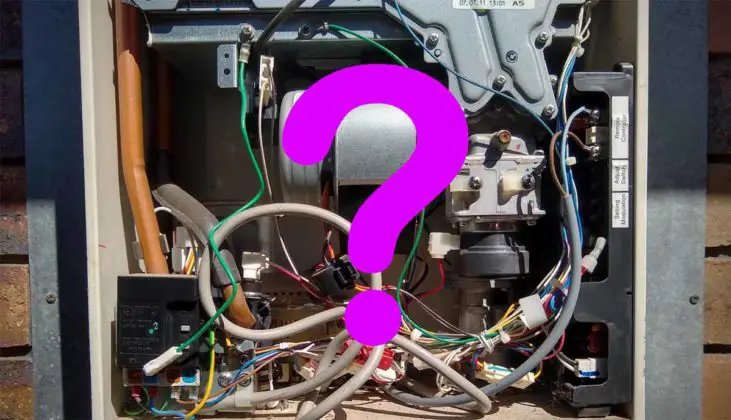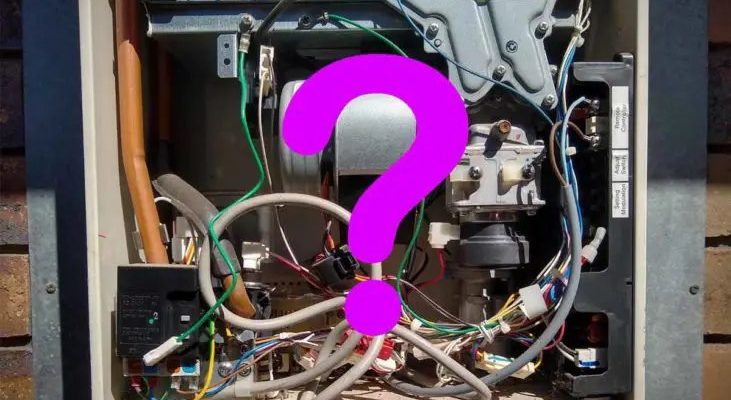
Error codes are like your water heater’s way of speaking. Think of them as your appliance’s SOS signals. When an E2 code flashes, it’s more than just an annoying inconvenience; it’s a cry for help. Ignoring it is a bit like ignoring the check engine light on your car. Sure, you might keep driving for a while, but you’re likely headed for bigger issues down the road. Understanding what that E2 code means can save you a lot of trouble and maybe even keep your home running smoothly.
Understanding Bosch Water Heater Error Code E2
So, what’s an E2 error code all about? Simply put, it’s a code that indicates a problem with your water heater’s ignition system. Imagine your water heater as a matchbox that needs to strike a match to heat water. If the match doesn’t ignite, there’s a glitch somewhere. This glitch is what the E2 error is flagging—it means the gas burner is not lighting.
Now, you might wonder why this happens. Well, there could be several culprits. It could be a faulty sensor, a gas supply issue, or even something as simple as a clogged burner. Think of it as having a blocked nose when trying to smell a flower—without a clear pathway, nothing happens. Without addressing the underlying cause, your water heater won’t perform its basic function of providing hot water.
Ignoring this code might lead to inconsistent hot water supply, or worse, a complete shutdown of your heater. No one wants a sudden cold shower, and certainly not the safety risks associated with gas appliances that aren’t working correctly. So, it’s crucial to address any ignition issues sooner rather than later.
Common Causes of the E2 Error and How to Diagnose Them
You might be curious about what triggers this pesky E2 error code. One common cause is a dirty or blocked ignition electrode. This can happen over time as dirt and debris accumulate, making it harder for the electrode to create the spark needed to light the burner. Imagine trying to light a match on a damp surface—it just won’t catch.
Another potential issue could be related to the gas supply. If there’s an interruption or fluctuation in gas flow, it can prevent proper ignition. This is akin to trying to light a campfire with a wet log; no matter how many matches you strike, it won’t light up. Finally, a defective sensor might be to blame. The sensor acts like an unsung hero, ensuring safety by shutting down the system if it doesn’t detect ignition. If it’s malfunctioning, it may incorrectly stop the process.
So, what can you do? Start by checking for obvious blockages around the ignition electrode. A gentle clean with a brush might remove any debris causing the issue. Next, ensure your gas supply is steady and that there are no leaks or irregularities. If you’re not comfortable with these checks, or if the issue persists, calling a professional technician is a smart move.
The Risks of Ignoring the E2 Error Code
Ignoring the E2 error code is tempting, especially if the heater seems to work fine intermittently. But here’s the deal: overlooking this issue can lead to gradual system degradation. You wouldn’t ignore a slow leak in your tire, right? Eventually, it’ll lead to a flat or blowout, causing more trouble and expense than if you’d dealt with it initially.
Leaving an E2 error unattended can result in inefficient heating, causing your appliance to use more energy and money to heat your water. This is like constantly revving a car engine without going anywhere—it wastes fuel and isn’t good for the engine. Plus, safety becomes a significant concern. Faulty ignition in gas appliances can lead to gas leaks, posing health risks and potential fire hazards.
Therefore, timely intervention not only prolongs your water heater’s life but also ensures your home remains safe and energy-efficient. If you’re unsure about handling the issue, seeking professional help is always a wise option.
Steps to Prevent Future E2 Errors
Prevention is definitely better than cure, especially when it comes to home appliances. Regular maintenance is key to preventing error codes like E2 from disrupting your day-to-day life. Think of your water heater like a plant; a little care here and there keeps it healthy and thriving.
Start by scheduling routine check-ups for your water heater. These can help catch potential problems before they become major issues. Cleaning the burner and ignition electrodes regularly can do wonders in preventing blockages. Also, keep an eye on your gas supply system to ensure there’s a consistent flow. This is crucial since fluctuating supply can cause ignition problems.
Lastly, don’t hesitate to reach out to a professional if things seem off. They have the expertise to detect and fix problems that might fly under your radar. Regular maintenance not only prevents error codes but can also improve your water heater’s efficiency and lifespan, ensuring that you get the most out of your investment.
In conclusion, while it might be tempting to ignore the E2 error code on your Bosch water heater, acknowledging and addressing it is the smarter and safer choice. By understanding its causes and solutions, you can take proactive steps to ensure your water heater functions smoothly, saving you from unexpected cold showers and bigger headaches down the road.
